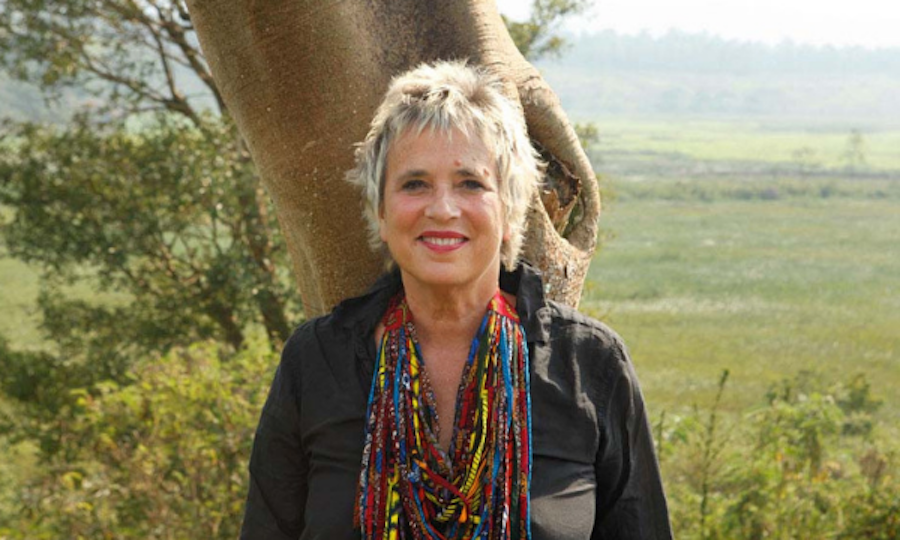Eve Ensler’s Latest: “The Apology”

Like millions of women, Eve Ensler has been waiting much of her lifetime for an apology. Sexually and physically abused by her father, Eve has struggled her whole life from this betrayal, longing for an honest reckoning from a man who is long dead. After years of work as an anti-violence activist, she decided she would wait no longer; an apology could be imagined, by her, for her, to her. The Apology, written by Eve from her father’s point of view in the words she longed to hear, attempts to transform the abuse she suffered with unflinching truthfulness, compassion, and an expansive vision for the future.
This apology required time. It could not be rushed. Fortunately, I have had practice here endlessly reliving and rehashing my crimes, mentally reenacting the details. I know you have said that an apology must be thorough and can only be trusted in its veracity and dedication to details. I have done my best. I have followed your very strict guidelines: Recognize what I have done as a crime. Face how deeply my actions and violations have impacted and devastated you. See you as a human being. Attempt to experience or feel what it felt like inside you. Feel profound remorse and regret over my actions. And finally, take responsibility for my actions by doing extensive work to understand what made me do what I did.
I will need to go back in this letter to locate the roots of my behavior. I will be as honest as a formerly disingenuous person can be. I will attempt to proceed with neither defensiveness nor self-pity, as I understand neither will further clarify nor resolve.
Many of the living do not believe they are in relationship with the dead. I was one of them, hiding in the delusion, or perhaps the hope, that what is gone is gone. That we pass through as flesh-and-blood creatures and die and rot or are burned into ether.
The dead are yearning for the living. It is only through the living, through their deepest imaginings and empathy, that the dead can be known to themselves and can be freed. And if the living are able and willing to access their love of the dead, able to access their anger at the dead, essentially to be in relationship and true dialogue with the dead, the dead will rise and speak. We remain lodged and hidden inside our families and loved ones, those we have harmed and those we have fostered. We are there inside the walls of the old houses and the silence of the evening, inside the celebratory moments, the rites and rituals of births and weddings and funerals and any place where the living long for the witness and approbation of the dead. We are there like a dormant cell in the bloodstream, waiting to be catalyzed by the devotion of the living, by the need of the living to understand and have resolution. There, ignited by the generosity of the living to remember and cherish and argue and wrestle and restore.
It does not surprise me that it is you, Evie, who summoned me back. You, who were willing and able to hold my sorrow and grief when I could not venture near it, to weep my tears when I was dry, to claim and hold and attempt to know the essence of a soul I had betrayed.
I am sure it must surprise you to see that I can write, and even more to discover how I write, the language I speak. Frankly, it has surprised me. I imagine it is more formal and emotional than you would have predicted.
But what you don’t know (or perhaps deep inside you do), is that I dreamed of being a writer. A writer or a rabbi. I dreamed of a solitary life of meditation and study and reflection, a life of philosophy and grasping at the huge questions of meaning and matter.
I dreamed in many ways of the life you have lived. And if I take any solace in contemplating the consequences of my deplorable deeds, I sometimes imagine that perhaps it was my unfulfilled dreams that entered you and inspired your destiny. This is not an attempt to take credit for who you are or what you’ve become. You’ve made your life, every hard inch of it. And I know that so much of who you are was not so much about constructing but reconstructing, piecing back the fragments of self that I forcibly and strategically (whether consciously or not) splintered and disassembled. I am all too tragically aware of who you would have been—confident, secure in your memory and intelligence, happy, living inside your body. I saw who you were before I worked my destruction.
Credit: From The Apology by Eve Ensler. Used by permission of Bloomsbury Publishing. Copyright 2019 Eve Ensler.
This essay was featured in the May 19th edition of Maria Shriver’s Sunday Paper newsletter. The Sunday Paper is the paper of record for individuals who want to be Architects of Change, lead meaningful lives and Move Humanity Forward. To get inspiring and informative content like this essay delivered to your inbox each Sunday morning for free, click here to subscribe.
READ MORE STORIES THAT MOVE HUMANITY FORWARD
READ MORE STORIES THAT MOVE HUMANITY FORWARD
SIGN UP FOR MARIA’S SUNDAY PAPER
